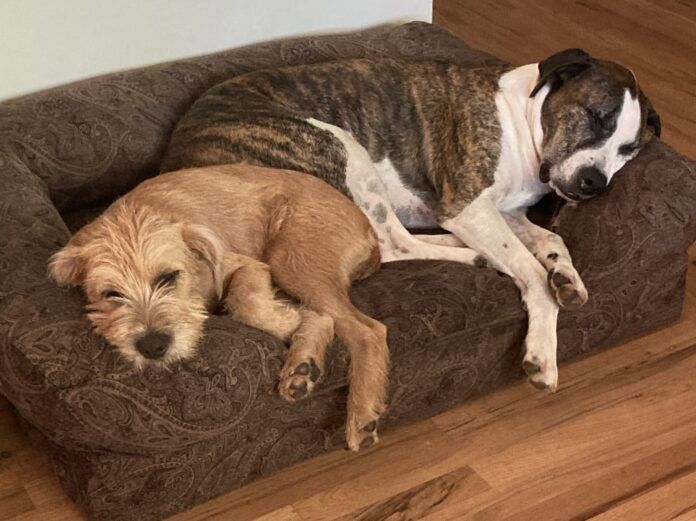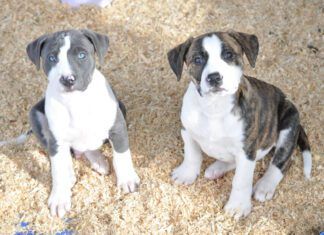I’m the youngest in my family of origin. My siblings are seven, six, and five years older than me. When I became an adult, my mom said to me more than once, “I hardly remember raising you!” – and the funny thing is, I’m not certain she did! When I was little, it was my middle sister Susan who told me to take showers, brush my teeth, brush my hair, and put on clean clothes in the morning. When I was in high school and she was in college, she was the one asked about the courses I was taking (and what grades I was getting) and talked to me about college. It seems to me that by the time I came along, my parents were tired of raising kids to the high standards they had when my older siblings were little – there are no photographs of me in pristine red velvet dresses with white lace collars and black patent-leather shoes, standing alongside my brother, resplendent in his tiny red velvet suit jacket with matching shorts! There are hardly any pictures of me when I was little at all!
It just occurred to me that other day that I have unwittingly replicated this pattern with my current dogs.
When I first adopted Otto from my local shelter in June 2008, he was about 7 months old. I had been editing WDJ for 10 years at that point, and had learned a lot about care and feeding and training with positive reinforcement. As a “crossover trainer” (someone who originally learned about training dogs with a lot of yanking on choke chains), I was eager to train my new dog “from scratch” as a new convert to positive training. Otto had some behavioral quirks, and I read everything about modifying his anxious behaviors to maximize his confidence. I paid exquisite attention to his diet, vaccinations, dental health – you name it. (This is the canine equivalent of parenting those perfectly coiffed kids in their matching red-velvet outfits and glossy patent-leather shoes.)
When I “foster failed” with Woody in January 2016, I felt a strong responsibility to make sure that my new bully-breed-mix developed into a social dog who would be safe with humans of any and all descriptions. I enrolled him in puppy kindergarten and puppy socials and took pains to introduce him to all kinds of different people and places.
This became my most urgent priority when my friendly, happy-go-lucky puppy entered adolescence and started displaying behaviors that revealed new apprehensions about meeting unfamiliar humans. When he hit about 7 or 8 months old, my super-socialized, confident puppy began hanging back from meeting new people, growling while wagging his tail, with the hair on the back of his neck and shoulders raised. Piloerection (the proper name for that raised hair) is the most compelling evidence that his behavior was due to anxiety; dogs can’t intentionally raise their hackles! (It’s an involuntary response of the sympathetic nervous system associated with a number of emotional states, including fear, arousal, insecurity, defensiveness, and unfamiliarity.)
For our first three years together, I took Woody everywhere, while micromanaging his meetings with anyone new, to make sure he was always comfortable and never scared. Eventually, about 95% of his anxiety when meeting new people has dissipated. Given his size, strength, and intimidating appearance (in the opinion of some people), I still strive to make sure that he’s never put in a position to be scared of humans and that no one is frightened of him, so that all parties concerned can behave normally and not freak each other out.
In other words, I “parented” the heck out of my first two dogs.
Which brings me to Boone – the youngest child in the family. Somehow, with the demands of work, family-related travel, and Covid, I never got him signed up for puppy classes or puppy socials (he attended two puppy socials with a friend who was thinking about adopting him, back when I was still on the fence about keeping him). I keep saying I will sign up for an adolescent dog training class, but haven’t yet! (I have more travel on the horizon! And my son’s wedding coming up! And likely more excuses!)

By this age, Otto and Woody both had snappy sits, solid downs, and reliable recalls. They walked nicely with me on leash and off. And speaking of “Off,” we worked on this behavior all the time, so when we saw a snake on the trail, I could ask them to “leave it” and knew that they would come right back to me on cue. Oy! Boone has a nice sit and down, and comes when I call when he’s out wandering around my property, but we’ve barely worked on any formal behaviors.

And yet, with barely any training or conscious socializing at all, he’s done just fine anywhere I’ve taken him, from a dog-related conference at a hotel in the San Francisco Bay Area, to friends’ houses in towns and the country, in cars, trucks, and elevators. He walks nicely on leash – even though I have worked on this behavior only twice that I can recall. No matter where we go or what we do, he’s relaxed, confident, and friendly – with only one exception: He has a tendency to be “guardy” about high-value food around other dogs, so I manage any situation where I have food and other dogs are present fairly assiduously. Other than that he’s been easy-peasy!
I’m not proud of the fact that Boone is growing up with little planned education or checklisted socialization plans – but I am pleased with how he’s turning out, regardless. I think I have to give all the credit to middle-child Woody for raising this puppy!







Hi Nancy, Just to let you know there is a great class on raising/living with a teenage dog being offered NOW at FenziDogSportsAcademy.com . Its called Teenage Tyrants: Surviving your dog’s adolescence.
Its all online. Registration is open now and the class starts on Aug 1. I am taking this one as well as the puppy class being offered with my now 4 month old puppy. Just an idea in case you are still thinking you’d like to do something “class-like” with your boy. Thanks for the articles – I really enjoy your magazine!
Oh my gosh! I can totally relate to this. When our “baby” dog came along, our other two dogs were socialized, fairly trained, etc., I just kind of forgot about all of this. I “homeschooled” him with training and he was pretty good but he was scared of kids and most new people. (We didn’t have any, he was actually the “consolation prize” of finding out we couldn’t get pregnant.) He’s been gone a year, sadly. Our current pup, 13 years old, was adopted by us at age 6. Her first owners must have been amazing because she’s trained and social. I think they had to go to a nursing home, otherwise, she’d still be with them.
I have learned over the years that it’s always easier to raise a “newbie” when you already have a (in my case) semi trained pack. It’s the introduction that counts, and from then on it’s pretty easy peasy.
PS Have you tried the Vetri Science Perio for Otto’s teeth yet?
Boone is the cutest! Sometimes you just get lucky and they come to you perfect. I’ve had a few like that and it is always a joy.
for many years, it was my policy to acquire a new dog while there was an older dog in the house to pass along his/her wisdom. i always knew that made training the new arrival so much easier. Boone is absolutely adorable, and one of these days i will be on the lookout for a dog like him, that scruffy terrier mix gets me every time!!
I don’t think anyone should feel guilty about not piling on the formal training, etc, with a new dog when there are older dogs in the family to help out. Dogs communicate with each other, and teach the new guy the routine, whether the new guy is a puppy or an older dog. I’ve been so grateful for my old guys when I’ve adopted a new adult or senior dog that’s lost their family for whatever reason. Their world has been turned upside down to start with, and they don’t always have much training. My resident pups show them all kinds of things: how to use the doggy door, which dog bed is okay to use in the living room and at night, and they help them overcome the fear of newness. Your old guys are a great resource and are often a comfort and guide to a newer member of the family.
My Border Collie, now 13 years old, has always behaved perfectly, but she has never had formal training. We got her at 8 weeks old, and by 10 weeks old she was fully house trained. When I took her for her second vaccination the vet was amazed, I just asked her to sit, and strait away she sat for her injection, we had practiced a little but not much yet she was so reliable, and that was how she was for her down and recall, walking on a lead is a dream, she is perfect, friendly to everyone and everything. I don’t have any unique training methods, she just wanted to please. I consider myself very privileged to have this dog, she is as she has always been perfect in every way.
Very nice article.
So true!!! I have bizillions of photos of the dogs of my past and barely any of my current dogs. Reminds me of the scene in cult movie Buffalo 66 where neglectful parent Anjelica Huston tries to find `the picture of Billy’ (there is only one) to show Billy’s faux girlfriend. On the other hand, I know that I am so much better a dog parent in terms of my training and animal husbandry experience and knowledge than in my younger years. So it evens out😊.
Oh wow, a mini Otto!!!! So cute!
Oh my!!! So many wonderful things about older dogs! May they live long and be greatly loved ❤!
Really enjoyed reading this one Nancy! Love your pups.
The right dog at the right time, in the right place. Glad it’s working out so well!
I don’t know about younger dogs, but I have never noticed this with my dogs.
As for human families, I always thought that ‘Youngest child’ was spoiled brat, especially when s/he is much younger than the previously younger child.
Youngest ‘human’ child can be babied too much, not learn to think independently, be bullied and bossed. Sometimes turn out insecure. They need to value their own worth. Sometimes they lack their own identity and need to escape the past in order to move forward.
Yes, yes, if possible, always “overlap” dogs; they speak the same language. Of course, that means very careful and broad training of your first puppy!